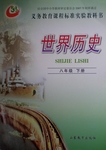题目内容
My first reaction was annoyance. It was Friday after-noon, and I was within an hour of finishing my Work for the week. As I was leaving, a nurse brought me one more patient message. The statement read: “Mrs. Jones called to say that she has had blurred vision (视觉模糊) ever since her medical test this morning. ”I smiled. Suddenly our tests were causing eye problems.
This week my patients had questioned everything. My patient with high b1ood pressure had stopped coming to her treatment on the advice of an Internet chat room. A woman who had a mental problem was substituting(用……替代) St. John’s word for her medication. Now Mrs. Jones was imagining problems. I rolled my eyes.
My second reaction was worry. As I looked through her record, I tried to figure out why she would have blurred vision, but nothing in her record explained the new problem. She’s probably just anxious, I thought. Still, she wouldn’t have called if she had been all right. I picked up the phone.
What I next felt can only be described as delight. Before I made the call, the nurse ran in:Mrs. Jones called. Her vision is fine. Turns out she picked up the wrong glasses when she left the office. The X-ray technician has been having the same problem. I let out a laugh. Mrs. Jones had been right. Her vision had been blurred. Now we know why.
Finally I felt shame. I came to realize what Mrs. Jones had taught me. I had first known she was wrong, that her anxiety had clouded her judgment instead, my medical training had clouded mine. Now I feel thankful that Mrs. Jones figured it out before I made a mistake about our relationship. Patients come to me for my help. They pay me to listen, diagnose(诊断), treat and talk. That suggests trust:I must remember that, and trust them too.
1. The writer smiled while reading the patient message because he knew ________.
A. Mrs. Jones would ask for more tests
B. the patient was being unreasonable
C. the nurse was joking with him
D. Mrs. Jones Would call him
2. What has caused Mrs. Jones’ eye problem?
A. Wrong glasses.
B. Medical checkup.
C. Her own imagination.
D. Chatting on the Internet.
3. The underlined words “clouded her judgment” in the last paragraph probably mean ________.
A. made her less trustful toward the doctor
B. put her in control of her own feelings
C. made her less able to think clearly
D. put her in a dangerous situation
解析:
1. B。考查考生根据短文有关内容进行简单推断的能力。从statement中的内容和作者的想法“Suddenly our tests were causing eye problems”可以推断,他一定是觉得他们的检查根本不可能带来这样的后果。 2. A。考查考生对短文中细节信息的理解情况。短文中谈到,护士跑来说明了事情的原由:she picked up the wrong glasses when she left the office。 3. C。考查考生根据短文中相关内容对短语意思的推断能力。做完体检后,竞将因错戴眼镜而看不清东西误以为是体检的后果,因此可以断言her anxiety干扰了她正确分析问题的能力。
|

 探究与巩固河南科学技术出版社系列答案
探究与巩固河南科学技术出版社系列答案